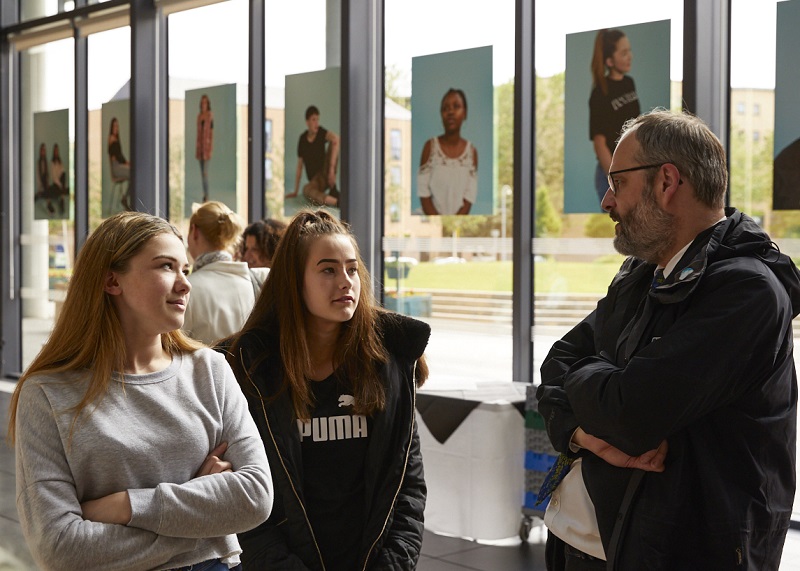- 200 years
- Study
- International
- Business and employers
- Research
- About us

Save the date!
Wed 26th and Thur 27th June 2019.
Register for your place until June 16th!
Hosted by the Manchester Centre for Youth Studies, the Education and Social Research Institute and the Health, Psychology and Communities Centre at Manchester Metropolitan University.
This was one of the first international multidisciplinary conferences to be held in the UK with a focus on co-production and creative methods that welcomed academics and community partners into a shared space. Co-production has become more mainstream recently within a number of disciplines and contexts across the social sciences and arts and humanities. This conference addressed methods and ideas in the broad area of co-production with a focus on making change happen. Our interest is on sharing ideas, inspiration and experiences around co-production with children and young people. The conference explored participatory and creative methods across the following themes:
You can download the conference programme here:
Co-production is at the heart of the 2019 Collaboration, Creativity and Complexities Conference
Stories of how researchers have successfully engaged young people in transformational projects were highlighted at a conference celebrating co-production.
The two-day Collaboration, Creativity and Complexities Conference 2019 held at Manchester Metropolitan University was one of the first international multidisciplinary conferences to be held in the UK with a focus on the co-production of projects with children and teenagers.
It brought together academics, youth workers, community groups, parents and children to address methods and ideas in the broad area of co-production with a focus on making change happen.
Professor Richard Greene, Pro-Vice-Chancellor Research and Knowledge Exchange, said: “We are strong in many aspects of research ranging from English to sport, and art to political economy, but there is no doubt that that sociology and research involving young people and communities is one of our strongest areas and it is central to the work of three of our 13 University Centres for Research and Knowledge Exchange – in the form of the Education and Social Research Institute; the Health, Psychology and Communities Research Centre, and the Manchester Centre for Youth Studies.
“The directors of those centres, Professors Kate Pahl, Rebecca Lawthom and Hannah Smithson have been instrumental in organising this conference.
“They make a tremendous contribution to the University and I would like to thank them for their work and congratulate them on their very many achievements.
“Undoubtedly, one of those achievements has been to raise the profile of co-production and the value given to projects that bring disciplines and sectors together to develop innovative ways of producing and sharing knowledge.
“Their work also emphasises the importance of listening to and working with children and young people.
“Manchester Metropolitan values both approaches and that is why I am pleased to see so many community groups and young people represented in the programme.”
Attendees discussed and shared ideas, inspiration and experiences around co-production with children and young people.
 Pro-Vice-Chancellor for Research and Knowledge Exchange, Professor Richard Greene, discusses co-production with two visitors to the Collaboration, Creativity and Complexities Conference 2019
Pro-Vice-Chancellor for Research and Knowledge Exchange, Professor Richard Greene, discusses co-production with two visitors to the Collaboration, Creativity and Complexities Conference 2019
Some of the MCYS research presented included:

Professor Hannah Smithson, Professor of Criminology and Youth Justice and Head of the University’s Manchester Centre for Youth Studies, is one of the co-organisers of the conference.
She said: “This is one of the first international multidisciplinary conferences to be held in the UK with a focus on co-production and creative methods which welcomes academics and community partners into a shared space.
“When designing this conference, we aimed to create a unique space to share ideas, inspiration and experiences around co-production that is uniquely inclusive of all partners necessary to making co-production with children and young people possible.
“Using our community outreach facilities, we created a welcoming space for practitioners, community groups, academics and, most importantly, young people to come together in an environment to focus on making change happen.
“We’ve been inundated with interest in the event across the two days, and overwhelmed with the quality and scope of work that has been shared during that time.
“Overall, it’s been a perfect illustration of why collaboration and co-production with children and young people is not only possible, but necessary.”
